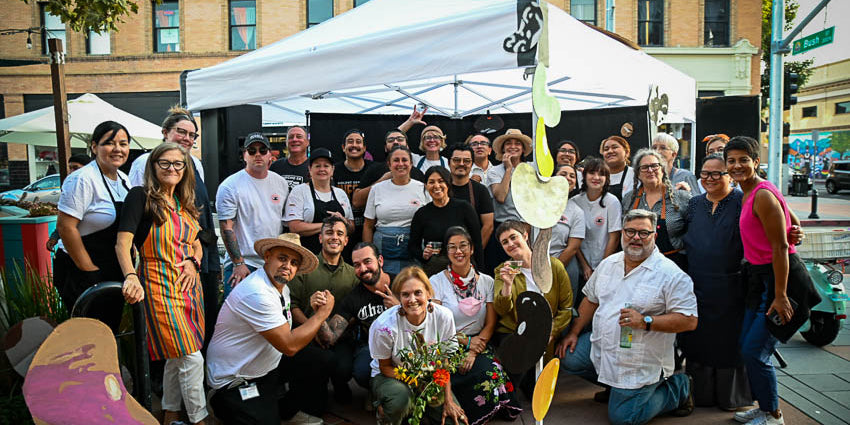







Christmas Lima Bean
Free shipping on orders $50+
An unusual variation of the classic Lima. It offers a rich, full-bodied flavor, with a velvety chestnut texture. A true revelation for those who think they don't like Limas.
"I hate lima beans!" is the reaction we get from most people when we show them the otherwise-appealing Christmas Lima beans. Customers are often surprised to hear that this a staff favorite!
Christmas Limas are an intriguing variation on the traditional Lima, thought to have originated in Peru (hence the name Lima). They have a distinct chestnut texture and (according to some) flavor, but it's so subtle that's up for debate. In Italy, you'll find them as Fagioli del Papa or Pope's Beans. Also known stateside as Chestnut Lima and sometimes Calico Beans. Whatever you call them, they've done a great deal to help fix the bad reputation of traditional Lima beans.
If you grew up thinking you hated Limas, you owe it to yourself to give this one a try.
Cooking Suggestions
Soups, salads, casseroles
From the Rancho Gordo Kitchen
There's a slightly grainy texture to this bean, but you can keep cooking past that and they end up being creamy. Christmas Limas can stand up to strong flavors, like a chile sauce or curry and pair particularly well with ingredients with a lot of umami, such as mushrooms and cheeses. Steve made a memorable meal once with Christmas Limas cooked in a Gorgonzola sauce!
Cooking Instructions
Check beans for debris, and rinse thoroughly. In a large pot, sauté aromatic vegetables (onions, garlic, celery, carrot, etc.) in olive oil. Add beans and enough water to cover by about 2 inches. Bring to a full boil for 10 to 15 minutes. Reduce heat to a gentle simmer, using a lid to help regulate the heat, and gently cook until done, 1 to 3 hours. Salt when the beans start to soften. A pre-soak of 2 to 6 hours will lessen the cooking time.
Similar to
Scarlet Runner, Large White Lima, Ayocote Morado
Latin name
Phaseolus lunatus
Country of origin
USA
"Heirloom Beans like Rancho Gordo's Christmas Lima beans are absolutely worth the (relative) splurge here: their texture and flavor are superlative."
Popsugar


